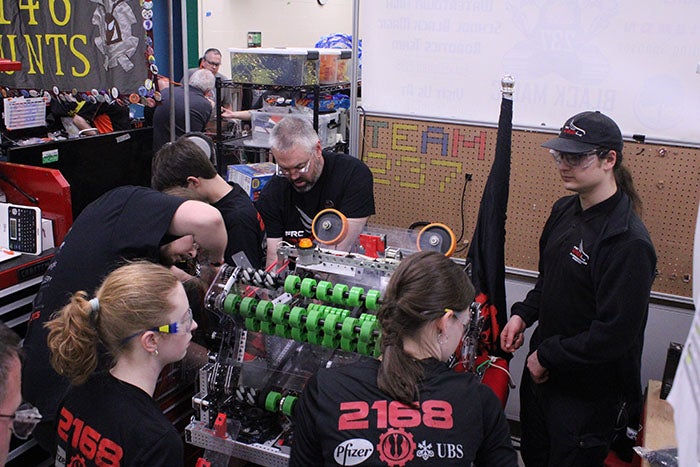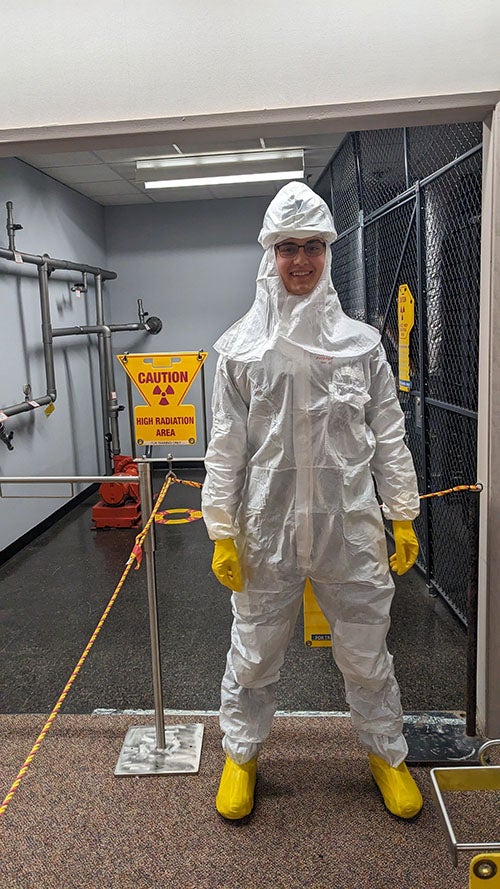Over the past two years, University of Rhode Island student Max Richardson has earned $15,000 in competitive federal support for his studies—most recently through the U.S. Department of Energy’s University Nuclear Leadership Program scholarship for $10,000.

Jan. 20, 2026- As a high school student, Max Richardson, of Groton, Connecticut, was introduced to mechanical principles and computer-aided design when he joined FIRST Robotics, a global nonprofit youth robotics community. Through the organization, students are taught core engineering principles. The teams are student-led and divided into sub teams that focus on design, fabrication, mechanical construction, programming, electrical, and business. Richardson was a student member for four years, and still returns to mentor his former team. “I truly believe it is the right place to inspire the future STEM professionals of the next generation,” said Richardson.
After high school, Richardson attended Three Rivers Community College in Norwich, Connecticut, where Professor James Sherrard hosts a prestigious two-year Nuclear Engineering Technology associate degree program, only one of three in the U.S. The program operates in cooperation with Millstone Station and students are taught concepts by retired nuclear professionals working for, or retired from local energy companies, and students often conduct co-op employment during the program.
Richardson wanted to continue his education and obtain a bachelor’s degree in mechanical engineering with a minor in nuclear engineering, so he transferred to URI’s College of Engineering.
Since joining URI, Richardson participated in the Hydrobotics Team and American Society of Mechanical Engineers student organizations his first two semesters. Currently, he is treasurer of Tau Sigma Transfer Student Honors Society, a group still in its inception. “I am proud to assist our organization’s president mold Tau Sigma into a wonderful community for transfer students to meet their unique needs,” said Richardson.

He also founded the URI Nuclear Club, which hosts informational sessions that supplement the educational background students minoring in nuclear engineering receive from the college. “I hope to pass on the knowledge I received from earning qualifications at the Millstone Nuclear Power Station, and the information covered in my associate’s degree in Nuclear Engineering Technology,” said Richardson.
Additionally, he’s a member of many other professional organizations and honor societies. Richardson has also received numerous scholarships and recognitions, many of them from membership organizations such as Phi Theta Kappa, or the American Nuclear Society because of his interest in the subject material, participation at events, and knowledge of the field.
He isn’t stopping there. “I plan to continue my involvement with FIRST Robotics Team 2168, and the URI Nuclear Club,” said Richardson. “I also have more ambitious plans in the works to increase the scope, involvement, and community impact of the nuclear community at URI.”

He is on track to graduate in spring of 2027 with an additional minor in physics and then continue his nuclear education with URI’s master’s certificate in nuclear engineering and an MBA. “This latest scholarship opportunity will contribute significantly towards furthering my education,” said Richardson.
